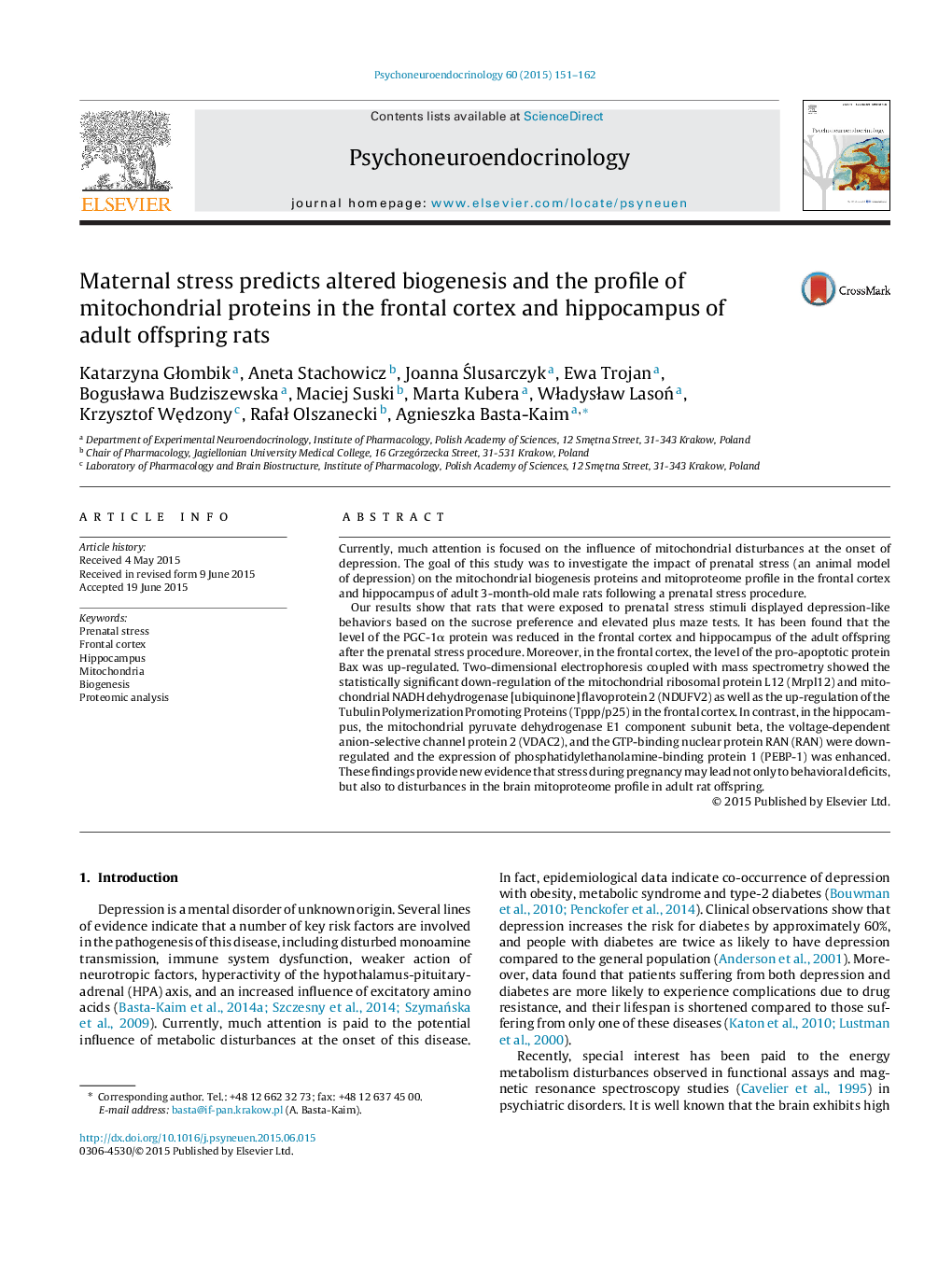| Article ID | Journal | Published Year | Pages | File Type |
|---|---|---|---|---|
| 6818730 | Psychoneuroendocrinology | 2015 | 12 Pages |
Abstract
Our results show that rats that were exposed to prenatal stress stimuli displayed depression-like behaviors based on the sucrose preference and elevated plus maze tests. It has been found that the level of the PGC-1α protein was reduced in the frontal cortex and hippocampus of the adult offspring after the prenatal stress procedure. Moreover, in the frontal cortex, the level of the pro-apoptotic protein Bax was up-regulated. Two-dimensional electrophoresis coupled with mass spectrometry showed the statistically significant down-regulation of the mitochondrial ribosomal protein L12 (Mrpl12) and mitochondrial NADH dehydrogenase [ubiquinone] flavoprotein 2 (NDUFV2) as well as the up-regulation of the Tubulin Polymerization Promoting Proteins (Tppp/p25) in the frontal cortex. In contrast, in the hippocampus, the mitochondrial pyruvate dehydrogenase E1 component subunit beta, the voltage-dependent anion-selective channel protein 2 (VDAC2), and the GTP-binding nuclear protein RAN (RAN) were down-regulated and the expression of phosphatidylethanolamine-binding protein 1 (PEBP-1) was enhanced. These findings provide new evidence that stress during pregnancy may lead not only to behavioral deficits, but also to disturbances in the brain mitoproteome profile in adult rat offspring.
Related Topics
Life Sciences
Biochemistry, Genetics and Molecular Biology
Endocrinology
Authors
Katarzyna GÅombik, Aneta Stachowicz, Joanna Ålusarczyk, Ewa Trojan, BogusÅawa Budziszewska, Maciej Suski, Marta Kubera, WÅadysÅaw LasoÅ, Krzysztof WÄdzony, RafaÅ Olszanecki, Agnieszka Basta-Kaim,
